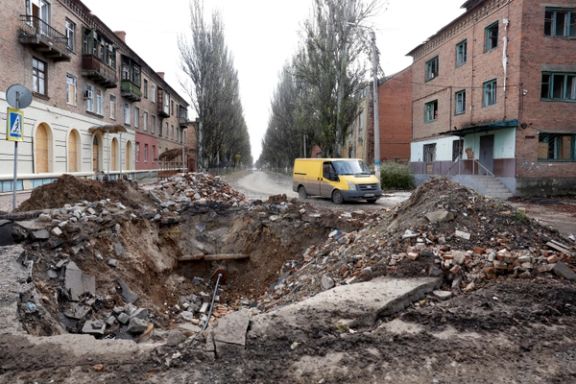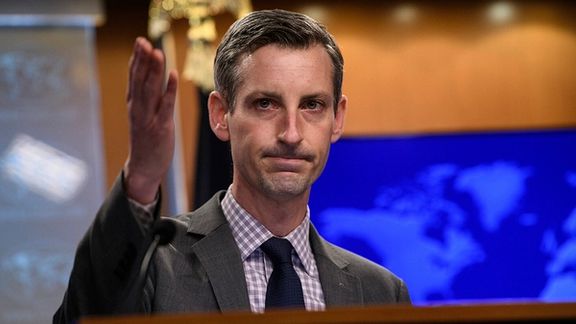Is US Using ‘Every Appropriate Tool’ Over Iran-Russia Links?

The administration of President Joe Biden struggles to maintain a coherent Iran policy under different pressures heightened by the Ukraine war.

The administration of President Joe Biden struggles to maintain a coherent Iran policy under different pressures heightened by the Ukraine war.
In a press briefing Tuesday United States State Department spokesman Ned Price faced questions as to what the US planned to do over alleged Iranian arms supplies to Russia. His answer over US options at United Nations led to a Twitter feed where his claims were rejected by Gabriel Naronha, Iran advisor 2019-21 during the Trump administration.
Price argued that the US was pursuing “every relevant and appropriate tool in our tool kit” to curb Iran’s reported supply of military drones, including sanctioning Iranian commanders and defense companies.
Price was less than enthusiastic over pushing at the UN Security Council (UNSC) for the ‘snapback’ of UN sanctions against Iran on the basis that such arms supplies violate UNSC resolution 2231, passed in 2015 to endorse the 2015 Iran nuclear agreement, the JCPOA (Joint Comprehensive Plan of Action).
“You know as well as anyone,” Price told a journalist, “that any effort to…stitch together a coalition in the UN Security Council, where you have the belligerent Russia as a permanent member with a veto – that any effort to stitch back together what has expired probably would not fare too well in the UN Security Council.”
The spokesman also suggested US options over snapback were compromised by leaving the JCPOA in 2018. But Price’s description of the mechanics of ‘snapback’ was contradicted by Naronha saying Russia would not hold a veto in such circumstances.

However technical the arguments, any linkage between the Ukraine war and the JCPOA weakens the contention of supporters of the 2015 agreement that nuclear proliferation measures should be dealt with separately.
Pledged to revive the JCPOA, the Biden administration has conducted over a year of talks with Iran without reaching agreement. With negotiations currently frozen, Biden officials – including special envoy Rob Malley in a Carnegie Endowment discussion Monday – have insisted that their intention remains JCPOA restoration.
At the same time, the US is keen that the Ukraine war not escalate. Despite sending at least $17 billion in military aid to Kyiv, Washington has refused advanced weapons. Price said Tuesday that Russia’s military position had been “significantly degraded,” with its “sophisticated weaponry and technology” curbed both through battlefield loses and US restrictions on its international access to chips and sensors needed for drones and missiles.
On the ‘same page’ with Europe
Another US vista, over both Ukraine and Iran, is its relationship with Europe. Malley stressed in his Carnegie Endowment talk on the way the Biden administration had overcome divisions with the Europeans left by the Trump presidency.
While Malley said Monday that reviving the JCPOA was “not our focus now,” he argued that Trump’s maximum pressure “didn’t work” and was “a real-life experiment that failed.” By contrast, he argued “there is nothing we are not doing now because of a possible nuclear deal in the future” and that “we and Europe are completely on the same page when it comes to reacting to Iran's nuclear program.”
The US and Europe, Malley said were “standing together shoulder-to-shoulder and expressing support for the Iranian people at this time when they are confronting the violence of the regime…we really have succeeded in re-stitching what is so crucial if we want to have a common front to push back against Iran's destabilizing activities, human rights violations, or nuclear program.”